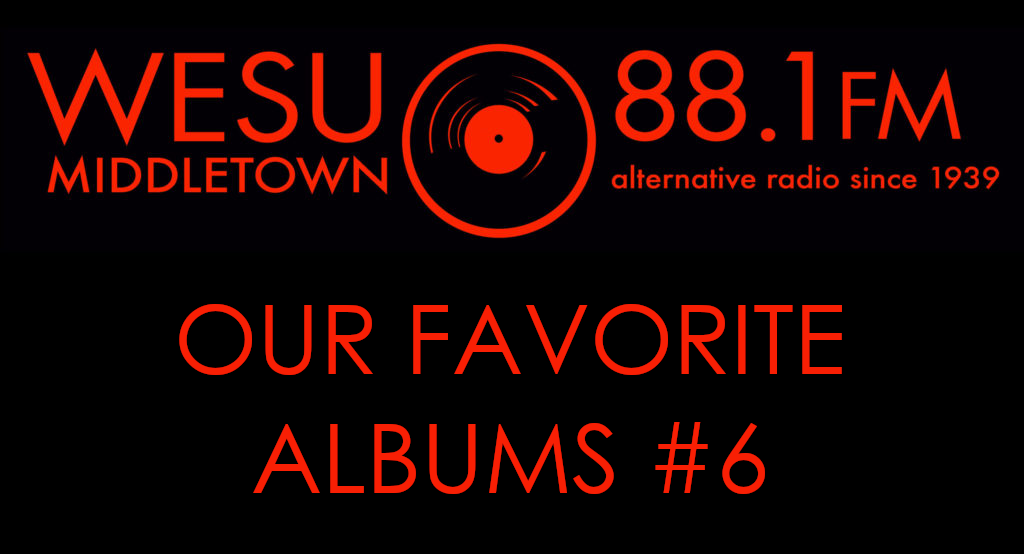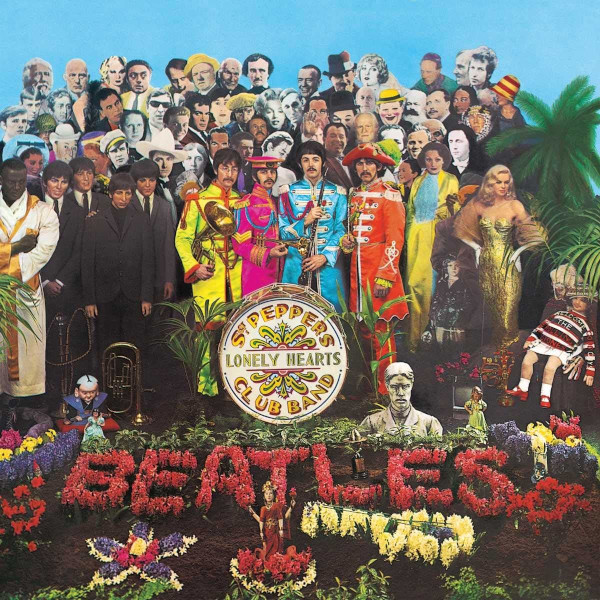Our Favorite Albums #6

6. The Beatles – Sgt. Pepper’s Lonely Hearts Club Band [1967]

Nominated by DJ McKenzie of Splitting Hairs & The Beatles: A Week in the Life, Johnny Ganache of Pint O’ Comics, Leith of The Light Fandango, Psychedelic Rick of The Psychedelicatessen, Michael Benson of 75% Folk, and Rob of Chocolate Cake.
DJ McKenzie says: Perhaps the most iconic Beatles album, it hasn’t grown on me the same as “Revolver,” “Rubber Soul,” or “Abbey Road,” but it’s still a very impressive achievement that features many great songs. In addition, simply the idea of adopting a new persona as a band is very intriguing and innovative.
Johnny Ganache says: Epic.
Michael Benson says: Changed pop/rock music.
Rob says: A splendid time is guaranteed for all.
In November, during [McCartney’s] and [tour manager Mal] Evans’ return flight from Kenya, McCartney had an idea for a song that eventually formed the impetus of the Sgt. Pepper concept. His idea involved an Edwardian-era military band, for which Evans invented a name in the style of contemporary San Francisco-based groups such as Big Brother and the Holding Company and Quicksilver Messenger Service. In February 1967, McCartney suggested that the new album should represent a performance by the fictional band. This alter ego group would give them the freedom to experiment musically by releasing them from their image as Beatles.
McCartney was highly impressed with the “harmonic structures” and choice of instruments used on Pet Sounds, and said that these elements encouraged him to think the Beatles could “get further out” than the Beach Boys had. He identified Pet Sounds as his main musical inspiration for Sgt. Pepper, adding that “[we] nicked a few ideas”, although he felt it lacked the avant-garde quality he was seeking. Freak Out! by the Mothers of Invention has also been cited as having influenced Sgt. Pepper. According to the biographer Philip Norman, during the recording sessions McCartney repeatedly stated: “This is our Freak Out!”
Indian music was another touchstone on Sgt. Pepper, principally for Lennon and Harrison. In a 1967 interview, Harrison said that the Beatles’ ongoing success had encouraged them to continue developing musically and that, given their standing, “We can do things that please us without conforming to the standard pop idea. We are not only involved in pop music, but all music.” McCartney envisioned the Beatles’ alter egos being able to “do a bit of B.B. King, a bit of Stockhausen, a bit of Albert Ayler, a bit of Ravi Shankar, a bit of Pet Sounds, a bit of the Doors”. (wikipedia.org)